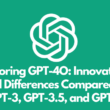Are you working on your resume? And trying to figure out which soft skills look the best on a resume? Whether you’re just starting out in your career or have years of experience, reviewing this list of the top skills to highlight on your resume can always be beneficial. If so, you must read this article. Find the list of the top 10 soft skills to put on a resume and stand out.

Defining skills:
Skills are defined as the ability to perform a task or activity with competence, proficiency, and expertise. Skills are vital to a successful career and can make a significant difference in achieving professional goals.
Whether it’s technical expertise, communication abilities, or problem-solving skills, developing and showcasing a range of skills can help individuals stand out in the job market and advance their careers.
Type of Skills:
There are two types of skills: Hard skills and Soft skills.
Hard skills, also known as technical skills, are specific to a particular job and may differ between positions and seniority levels. For example, an accountant needs to know how to reconcile bank statements, while a developer may not require this skill.
Hard skills are generally acquired through education and on-the-job training. On the other hand, soft skills are general and relate to personality traits. They are important regardless of position or expertise and can include communication, teamwork, leadership, and problem-solving skills.
Soft skills are typically developed through a combination of personal and professional experiences,
Measuring hard skills is often straightforward and can be described using numerical or yes/no criteria.
For example, proficiency with a particular software or tool can be quantified. Soft skills, on the other hand, can be more challenging to measure and are usually evaluated through situational and behavioural interview questions and soft skills tests.
Both hard skills and soft skills are important for career success, and employers often seek candidates who possess a combination of both. While hard skills are often necessary for job performance, soft skills can help employees work effectively with others and navigate workplace challenges.
Top 10 Soft Skills To Put On a Resume
1. Communication:

One of the most important skills in the workplace is effective communication. Employers recognize that communication is essential because it makes workplaces more efficient and friendly.
Good communication is not just about speaking effectively; it also involves active listening, understanding, and responding to colleagues’ ideas and concerns.
Oral and written communication skills are both highly valued by employers, regardless of the industry. Clear communication ensures that everyone understands their roles, responsibilities, and objectives, and it promotes teamwork and collaboration.
2. Leadership:

Leadership skills are important in the workplace because they allow individuals to effectively guide, motivate, and inspire their teams to achieve their goals. A good leader possesses the ability to make sound and thoughtful decisions, especially during times of uncertainty and stress.
They can identify problems, evaluate alternatives, and choose the best course of action. For example, a leader who effectively communicates with their team can boost employee morale, foster collaboration and create a positive workplace culture.
By demonstrating strong leadership qualities, individuals can achieve greater success in their careers, as well as create better workplaces for themselves and their colleagues.
3. Writing:

Possessing writing abilities is highly advantageous because they are necessary for effective communication in the workplace. If you have the ability to clearly and coherently express your ideas and thoughts in writing, you can communicate with coworkers, clients, or customers more effectively.
Writing abilities can also help you create convincing reports, proposals, and presentations that can advance your career.
Also Read: How To Write An Essay – A Complete Guide
4. Organizational Skills:

Having strong organizational skills can be incredibly beneficial for your career, regardless of your industry or job title. You can manage multiple tasks, stay on top of your workload, and meet deadlines with the effective organization.
It can also improve communication with colleagues and clients and reduce the risk of errors or oversights. For example, suppose you work in project management.
In that case, your ability to create a detailed project plan with clear timelines, deliverables, and milestones can help you keep the project on track and ensure everyone involved understands their roles and responsibilities.
You can use tools such as project management software, calendars, and task lists to help you prioritize and manage your daily tasks, freeing up time and mental space for more significant projects or creative work.
5. Adaptability:

Adaptability is a precious skill in today’s ever-changing job market. Being adaptable means adjusting quickly to new situations and finding ways to succeed despite unforeseen circumstances.
For example, an adaptable employee may be able to quickly learn new skills or technologies required for their job or adapt to a change in company culture. Being adaptable can also help you stay calm under pressure, which is an important trait in any work environment.
6. Timeliness:

Timeliness is a skill that can help you excel in your career. It involves completing tasks and meeting deadlines promptly. Being timely in your work can help you establish credibility with your colleagues and supervisors, as it demonstrates reliability and accountability.
It can help you manage your workload more effectively, prioritising and completing important tasks on time. For example, if you’re a project manager, delivering a project on time and within budget can help you earn the trust and confidence of your stakeholders.
In a customer service role, responding promptly to customer inquiries and complaints can help you build strong relationships and maintain customer satisfaction.
7. Creative Thinking:

Creative thinking skills are important for success at work. This means thinking of new and different solutions to problems. For example, In a marketing role, creative thinking could help you create unique and impactful campaigns.
In a technical role, it could help you find innovative solutions to complex problems. Having strong creative thinking skills shows you can adapt and find solutions to unexpected challenges in the workplace. It makes you an invaluable asset to any team.
8. Teamwork:

Effective teamwork skills are crucial in the workplace as they enable employees to collaborate and work together towards achieving a common goal. Employers seek individuals who can work productively with others as part of a team.
Teamwork skills encompass communication, active listening, problem-solving, conflict resolution, and adaptability. With a cohesive team, tasks can be completed more efficiently and effectively, leading to increased productivity and job satisfaction.
9. Emotional Intelligence:

Emotional intelligence is a critical skill to possess in the workplace. It enables you to recognize and manage your emotions and those of others, making you more effective at handling interpersonal relationships.
A prime example of how emotional intelligence plays out at work is in the case of a manager who needs to deliver bad news to an employee. A manager who needs more emotional intelligence might blurt out the news without considering the employee’s feelings.
On the other hand, an emotionally intelligent manager will deliver the news with empathy, sensitivity, and understanding while still remaining professional. Such a manager will be able to ease the employee’s distress, maintain their trust, and prevent the situation from escalating.
10. Problem-Solving:

People who can solve problems are needed in every job. Regardless of whether you work in customer service, healthcare, or IT, you must be able to identify issues and find solutions without delay.
Consider the scenario where you work in customer service, and a client comes to you with a concern. It might be challenging for you to identify the issue and determine how to resolve it if you lack strong problem-solving abilities.
But if you have this ability, you can identify the client’s issue quickly and suggest an option that satisfies their requirements.
Conclusion:
Highlighting the best skills on your resume is a great way to stand out from other job applicants and attract employers’ attention.
By focusing on the top ten skills listed in this article, you can create a resume that stands out and will be noticed. If any of these skills are relevant to your work history or professional goals, include them on your resume.






